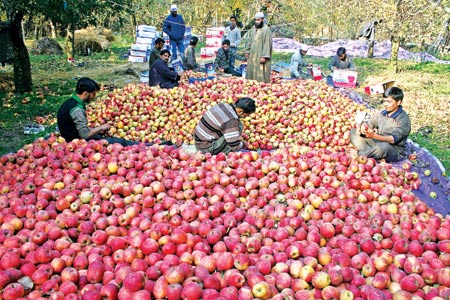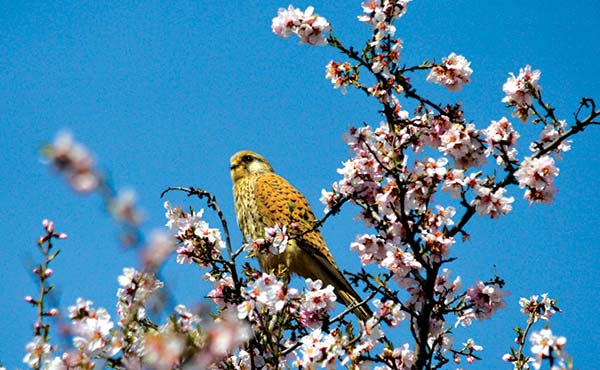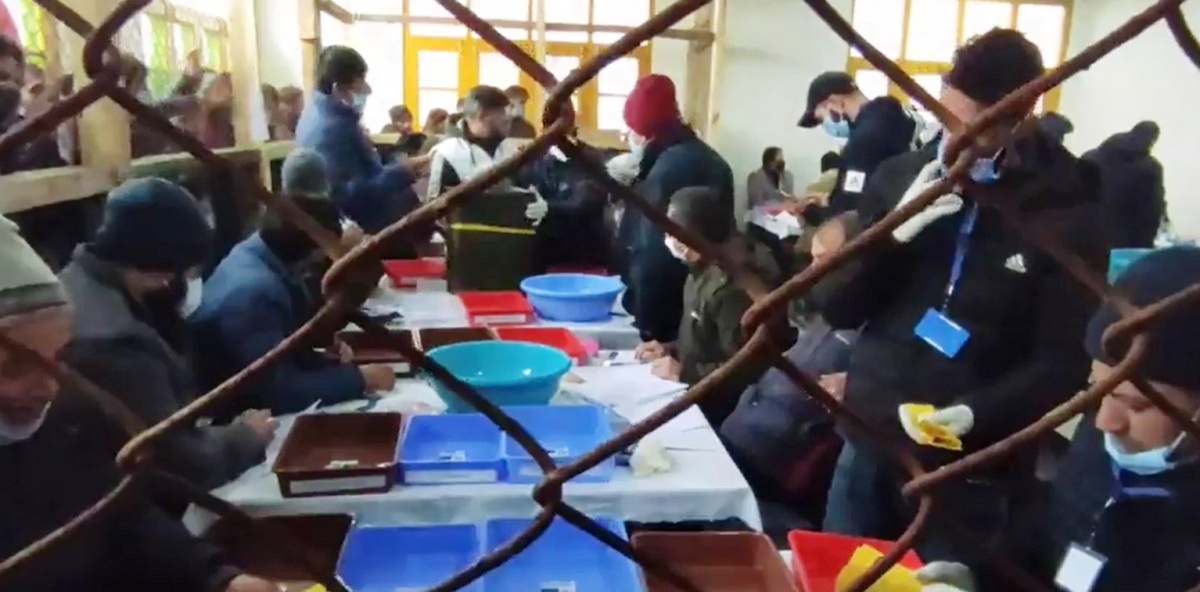Roomi Nazir
Pulwama
Culturing of almonds and apple orchards has been a trend in Kashmir since long depicting the aesthetic caption of Kashmir in generating its economic format. But there has been a rivalry in attempting its agricultural aspects by the implicated farmers. By relocating almonds, they have switched to apple culture in order to enhance their commercial productions.

“I have been operating this almond orchard since last 15 years. Earlier it boosted the expansion and venerated me with good supplements but time passed and its rates fell down abruptly in the share market due to which I suffered a big loss and I switched to apple culture,” said a local Mukhtar Ahmad Ganie.
Some of the experts of farming suggested that the life span of almond trees have reached to a level where they are not in a position to shroud with the continual yield.

“By cultivating both the breeds of trees in a single plot of land what I experienced, an apple tree bestows me thrice the profit of proceeds annually than an almond tree stipulates, said tanveer Ahmad khan, a farmer.”
The farmers who are still holding with almond land plots said that they are satisfied with the yields provided by almonds annually considering the well establishment of water management and soil fertilizing techniques.

“Repeated knock up of wild animals to the almond fields has predominantly damaged the anatomy of trees and has resulted into shrunk of its yield production,” said Nadir Kaka, guardian of the plot.
Majority of the farmers demanded that government should provide proper road managements tending to land plots, irrigation facilities, price concession on fertilizers and wildlife controls on behalf of farmers so that they can survive in the further competition.
When asked to the concerned stakeholders, they mentioned that folk of the present era is not contributing their diligent efforts in expanding the production level as has been performed by their progenitors in maintaining an equilibrium in production by contributing their active roles in agricultural practices.















